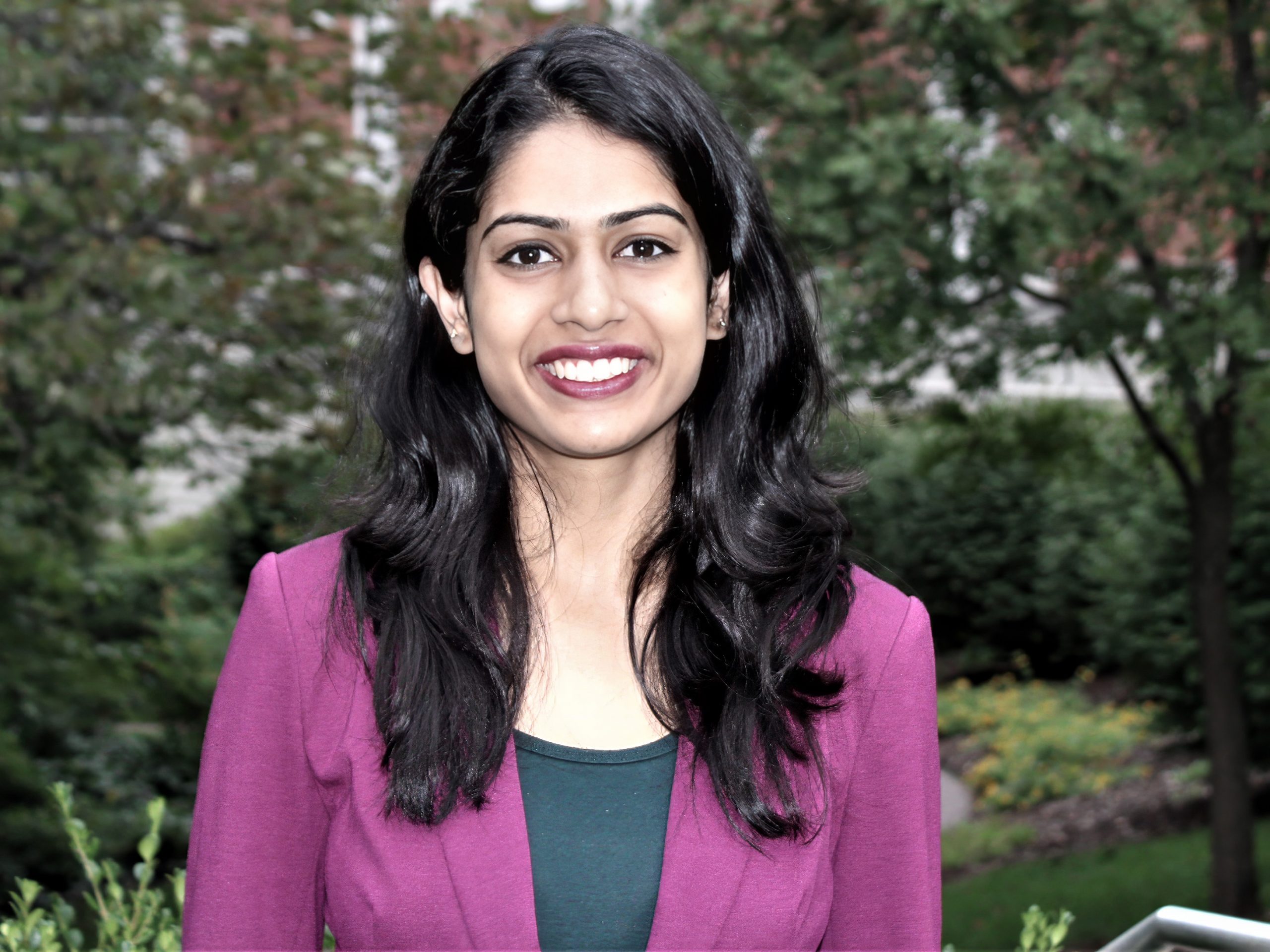Every day was a playdate for Valli as a little girl. Growing up in a large Tamil enclave in New Delhi, India’s capital, Valli and her cousins would spend each afternoon together.
Valli was born in 1991 in Coimbatore, a city in the southern Indian state of Tamil Nadu, where her maternal grandparents lived. Back in New Delhi, Valli’s parents raised her and her younger sister in a home they shared with her father’s family. At mealtimes, Valli’s aunt would gather all the children in a circle and engage them with family stories.
“If you were not eating, she would leave the story on this cliffhanger,” Valli explains. “We had to eat our share, and then she would continue.”
Activities like storytelling instilled Valli with pride in her family, culture, and community. Her mom ensured Valli knew how to read and write their native language, Tamil, using character flashcards made out of cut-up wedding invitations.
“I obviously did not appreciate her efforts at that time, but now I’m so grateful,” Valli says.
While Valli’s family spoke Tamil among themselves, she used Hindi outside the house. She also opted to learn Gujarati at school in addition to English, which was the primary language of her instruction.
After taking a psychology class, Valli was inspired to learn more about human behavior, so she attended the psychology program at the University of Delhi’s Jesus and Mary College. A two-hour commute from home, college allowed Valli to meet people from across India and neighboring countries. In her last year, a visiting Fulbright Scholar took Valli aside after a workshop and encouraged her to apply to graduate programs in the United States.
Before long, the 23-year-old Valli was moving to rural Kansas to earn a master of science in clinical mental health counseling from Pittsburg State University. Going from a densely-populated city to a small town was quite a culture shock, but she soon learned to love spending time outdoors. The most difficult adjustment was the lack of Indian cuisine.
“I mostly cried in my sleep that I was not getting the food that I wanted to eat. I really, really, really missed it,” Valli says.
As one of only five students in her cohort, Valli received extensive individual attention from faculty. As a teaching assistant, she covered classes by herself when the professor was ill.
“That’s when I realized I love teaching,” Valli says. “I just liked being in the classroom.”
Valli’s adviser urged her to apply to Ph.D. programs. Faculty in the psychology and counseling department helped with her applications. When a snowstorm prevented her from attending an interview at the University of North Carolina at Greensboro, Valli found herself without a laptop or office for a virtual interview. Her adviser quickly booked her a room in a library and got a librarian to loan her a computer. Valli would go on to earn her Ph.D. on a full scholarship to UNC Greensboro.
“It was a really crowdfunded, community-supported admission and experience,” Valli reflects. “A lot of people sowed the seed … for me to get the degree.”
After completing the Ph.D. program in 2019, Valli accepted an assistant professorship at Southern Oregon University in Ashland. After getting married and becoming pregnant with her first child, she switched from teaching to opening her own mental health counseling practice in Hillsboro.
Valli hopes to ensure her son feels both pride in his cultural heritage and confidence in his American identity. She knows firsthand that this dual identity will have its hardships.
“In an attempt to come closer to feeling normal, I find Indians painfully amputating parts of their culture, amputating parts of our identity,” she notes.
Valli sees a lot of false narratives surrounding immigrants and often has to juggle being viewed as “not Indian enough” and “not American enough.”
“It is not easy to have a foot in two worlds,” she says. “We are embodying that challenge, living that challenge every day.”
For her son, Valli teaches him their native language, pointing out Tamil characters in books just like her mother taught her the alphabet all those years ago.
“Language is a secret treasure house of cultural stories, cultural pride,” Valli says. “All these stories would get lost if we didn’t learn the language.”


One thought on “A Treasure House of Cultural Pride”
Exceptional child and enviable achievement.
From
Proud Father
Comments are closed.